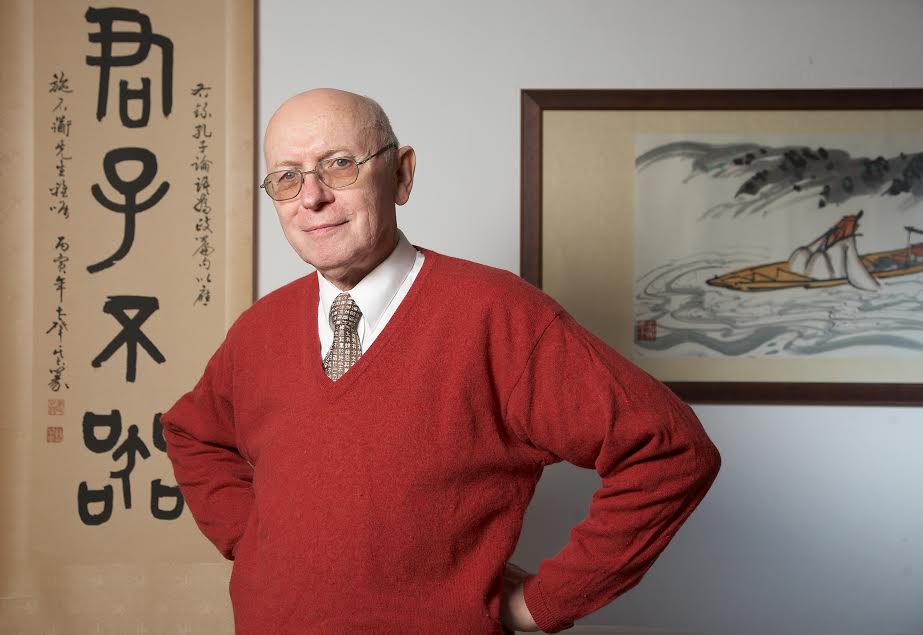China is the cradle of the East-Asian civilization, a place, where throughout history, different and distinct cultures influenced each other’s development. Out of those differences a country emerged, which is rich in traditions that constantly evolve. Professor Karl-Heinz Pohl will talk about different idologies that co-exist in China and influence its political system.
April 25
18:00-20:00
Warsaw
China: between Confucianism, Marxism and Democracy
China is a country of contrasts. On the one hand, the strong Confucian tradition, and on the other hand, Communism, influenced by Marxism and the Bolshevik Revolution. The People’s Republic of China, as Stalin’s ally, followed the Soviet doctrine, which was appartent not only in the system, bu also in ideology.
The Western concepts of democracy have been attracting Chinese attention from the very beginning of the 20th century. Xinhai Revolution of 1911, which established the Republic, initiated a transformation towards democracy, unfortunately an unsuccessful one. Many Chinese intellectuals consider the Maoist Cultural Revolution of 1966 as another horrible attempt to introduce “mass democracy.” Since the mid-1980s, there has been a strong movement opting for “grassroots democracy,” whereas the beginning of the 21st century saw new attempts in introducing new forms of deliberative democracy and consultations. It seems that President Xi Jinping promotes all three political approaches, namely: the revival of Confucianism, a new “soft version” of Marxism and “consultative democracy” approved by the 18th Party Congress in 2018.
There are various opinions on these processes and policies, but undoubtedly China is changing. Professor Karl-Heinz Pohl will present his opinions on these changes.
Asian Dilemmas Series

“The series is the first in many years public presentation of topics related to contemporary Asia and its relations with Poland and the rest of the world. Participation in the whole series may provide a sound knowledge base for individuals interested in the region, for example for students of International Relations and Asian Studies”, says Professor Krzysztof Gawlikowski, Director of the Center for East Asian Civilization at SWPS University.
Format of Meetings
The Center for East Asian Civilization at SWPS University has been invited by the Public Library at Koszykowa Street in Warsaw to prepare a series of public panel discussions and presentations on East Asia, under the common title “Asian Dilemmas”. The topics discussed during these meetings include contemporary matters of the region as well as its international relations, with a special focus on the relations with Poland.
The first series, entitled “China - the New Power” run from January 2014 to June 2016. The meetings took place every last Thursday of the month. The new series, “Asian Dilemmas”, devoted to economic, political, cultural and social issues of the region, starts on October 27, 2016.
The panellists will include renowned Polish and international specialists and government representatives, experienced in relations with Asia. The series is organized in cooperation with Warszawska Szkoła Reklamy [Warsaw School of Advertising], which provides video recordings of the meetings, available on the websites of SWPS University and the Public Library of Warsaw.
Panelists
Professor
Karl-Heinz Pohl
sinologist, up to 2010 headed sinology at the Trier University
Professor
Krzysztof Gawlikowski
Director, Center for East Asian Civilization, SWPS University
PANEL MODERATOR
Organizers
- The Public Library of Warsaw
Partners
- The Center for Asia-Pacific Studies at the Institute of Political Studies, Polish Academy of Sciences (PAN)
- Center for East Asian Civilization at SWPS University
- The Polish-Chinese Friendship Association

Asian Studies at SWPS University
The Asian Studies program offered at SWPS University in Warsaw, which focuses on China and East Asia, is unique in Poland and Europe.
The program offers an intensive Chinese (Mandarin) language learning (720 hours of instructions) and emphasises the practical use of language in everyday and business situations. Additionally, SWPS University offers an additional semester of study in China and supports students in securing scholarships for studying in Asia.
Students of Asian Studies become familiar with the culture, traditions and contemporary issues of the region. They learn about specifics of diplomacy in the region, international organizations and Asian business.
Additionally, they acquire competencies indispensable in relations with all Asian countries and especially with China - the biggest and most prominent country in the region.
SWPS University also offers English Studies program with extended Chinese (Mandarin).
More about the Program »
DATE AND LOCATION
Thursday, April 25, 2018, 18.00-20.00
The Public Library of Warsaw
Koszykowa 26/28
Stanisławów Kierbedziów Building, Entrance F, conference room
Registration at This email address is being protected from spambots. You need JavaScript enabled to view it.